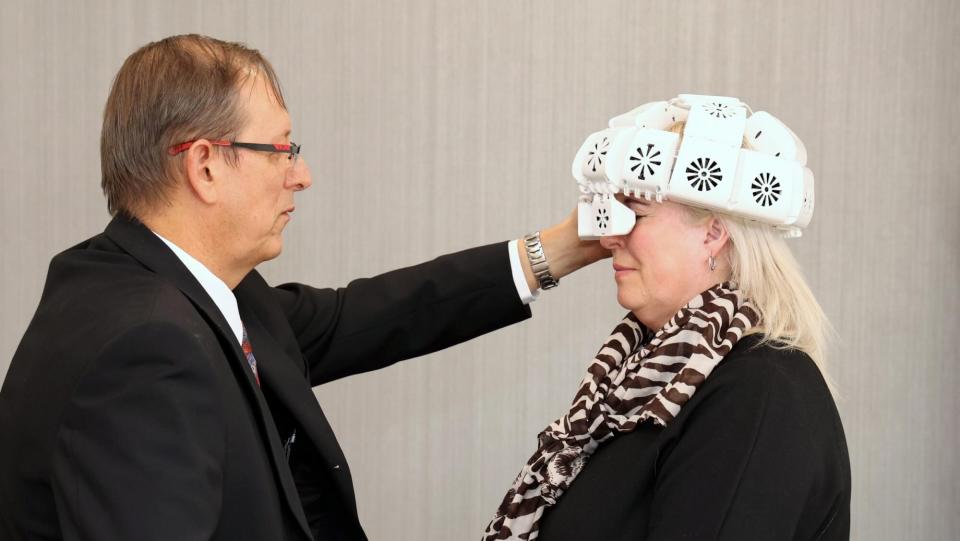How a New Six-Minute Treatment Could Improve Memory in Dementia Patients
There are plenty of ways you can protect your memory as you age, including maintaining a healthy diet, exercising regularly, and staying active in your community. But what if you could improve your memory in mere minutes? According to a new study conducted by researchers at Durham University in England, a new six-minute treatment could help patients with dementia and other brain disorders improve their memory. "I wasn't sure it would make a difference, but to be honest I think it did. After a few weeks I noticed that my sleeping pattern was better, I felt more relaxed and I had more energy," says study participant Tracy Sloan.
Researchers asked participants to wear a specially adapted helmet that delivers infrared light deep into the brain. It delivers 1,368 joules of energy during each treatment cycle, which helps generate most of the chemical energy needed to power the biochemical reaction in the brain's cells. The treatment leads to a rise in an organic compound that's significantly lower in patients with dementia.

Courtesy of Durham University/North News & Pictures
Related: Science Says That Taking Longer Breaks Can Boost Memory and Strengthen the Mind
The treatment has the potential to be a breakthrough therapy for people with Parkinson's disease, traumatic brain injuries, or motor neuron disease, according to researchers. They found the therapy improved memory, motor function, and processing skills. It also helped increase blood flow in the brain, which allows more oxygen to reach the organ's white matter. To track improvements, scientists conducted verbal, memory, and motor skills tests on participants before and after using the helmet. Their latest pilot study found notable progress in healthy adults, aged 45 and older who received six minutes of therapy twice a day, over a four week period.
Although the new technology is currently priced at $9,953.52, researchers believe the results are promising. "We've shown what appears to be real improvements in memory and other neurological processes for healthy people when their brains are exposed to a specific wavelength of infrared light for consistent, short periods of time," says study co-leader Dr. Paul Chazot of Durham University. "While this is a pilot study and more research is needed, there are promising indications that therapy involving infrared light might also be beneficial for people living with dementia and this is worth exploring."

